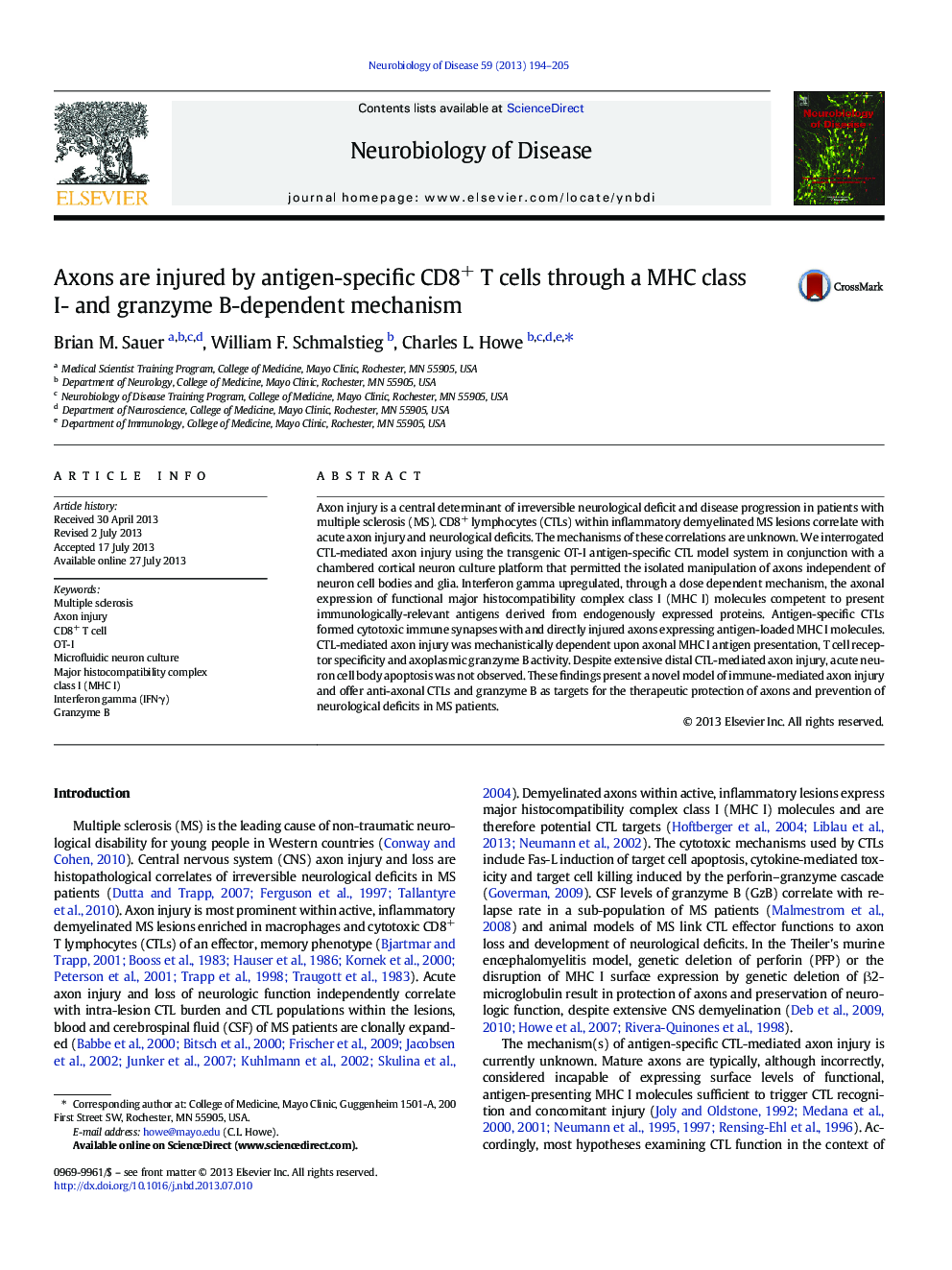| Article ID | Journal | Published Year | Pages | File Type |
|---|---|---|---|---|
| 6022278 | Neurobiology of Disease | 2013 | 12 Pages |
Abstract
Axon injury is a central determinant of irreversible neurological deficit and disease progression in patients with multiple sclerosis (MS). CD8+ lymphocytes (CTLs) within inflammatory demyelinated MS lesions correlate with acute axon injury and neurological deficits. The mechanisms of these correlations are unknown. We interrogated CTL-mediated axon injury using the transgenic OT-I antigen-specific CTL model system in conjunction with a chambered cortical neuron culture platform that permitted the isolated manipulation of axons independent of neuron cell bodies and glia. Interferon gamma upregulated, through a dose dependent mechanism, the axonal expression of functional major histocompatibility complex class I (MHC I) molecules competent to present immunologically-relevant antigens derived from endogenously expressed proteins. Antigen-specific CTLs formed cytotoxic immune synapses with and directly injured axons expressing antigen-loaded MHC I molecules. CTL-mediated axon injury was mechanistically dependent upon axonal MHC I antigen presentation, T cell receptor specificity and axoplasmic granzyme B activity. Despite extensive distal CTL-mediated axon injury, acute neuron cell body apoptosis was not observed. These findings present a novel model of immune-mediated axon injury and offer anti-axonal CTLs and granzyme B as targets for the therapeutic protection of axons and prevention of neurological deficits in MS patients.
Related Topics
Life Sciences
Neuroscience
Neurology
Authors
Brian M. Sauer, William F. Schmalstieg, Charles L. Howe,
